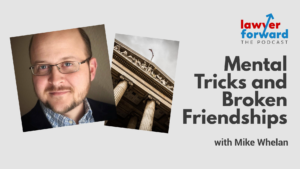
There’s been a lot of controversy about the upcoming August 14 implementation of changes to Title IX — the federal regulation that sets the standards for what is legally required in educational institutions when a student (or employee) is accused of a sexual crime on campus.
The rule changes, penned by Donald Trump appointee Betsy DeVos, are being opposed in four lawsuits joined by attorneys general from 18 states. The suits move for injunctions on the basis that the changes are impossible to implement quickly (especially with COVID-19) and unfair to accusers, who can now be cross-examined.
But from the perspective of the accused and civil rights organizations like FIRE, the changes were long needed and will help even the playing field between accuser and accused so that an allegation alone, without rebuttal or impartial investigation, won’t get a student kicked out of school.
Major revisions include:
1) The accused student will be presumed innocent, or “not responsible” during the grievance procedure. The school, not the accused student, will bear the burden of proof.
2) Both parties will have a right to submit and review evidence.
3) Both parties can be represented by an “adviser” of their choice (this can be an attorney but need not be).
4) The accused has a right, through their adviser, to ask questions of the complainant in real time, during a live hearing. (It used to be an attorney, if permitted to attend, could only suggest questions during the hearing. There was no guarantee they would be asked.)
5) The school must use trained Title-IX personnel, free from bias to either party, to evaluate all relevant evidence. The person who conducts the investigation can no longer be the adjudicator of the claim.
6) The standard of proof must be at least “preponderance of the evidence,” but can be higher such as “clear and convincing” evidence.
7) All parties (including the accused) are protected from questions about their prior sexual history, unless relevant to specific facts of the case.
9) At the conclusion of the hearing, a written analysis must justify the decision.
6) The accused student will have a right to appeal.
Coming from a criminal defense perspective, none of these changes seem radical. They guarantee some measure of due process to the accused and apply a consistent standard across the nation.
It does, however, cost money. Rejiggering the existing system, imposing new rules, training staff, etc., will require funding. “Not such an easy thing to come by these days,” said New York attorney Scott Iseman, who’s handled at least 20 of these cases. “Schools are getting more competent at it, in general, but some are more robust than others.”
Getting kicked out of school due to an allegation of sexual harassment is as traumatic as being arrested and tried for a crime. Public shaming, loss of tuition, and possible criminal investigation and punishment, make the stakes extremely high — particularly where many of the scenarios come down to a he said, she said contest.
A psychologist told me about a young man kicked out of a small private college for alleged sexual assault. He was a virgin, had been drinking at a party, and later had sex in his dorm room with a young woman. He thought it was consensual. The next day he found a sticker on his door reading: “That was not consensual, you know.” He was expelled and went into a deep depression.
Nationally, universities have adopted an “affirmative consent” standard. It requires communication between the parties, whether verbal or nonverbal, showing that each actively consents to sexual conduct. But the devil’s often in the details, and when one or both parties have been drinking or using drugs, the line between consent and incapacity to consent becomes difficult to discern.
The new standards set up specific procedures safeguarding the due process rights of the accused without diminishing the rights of the accuser.
Because they come from an administration whose leader has been accused of sexual harassment himself, the rule changes have drawn fire from many quarters. But from the perspective of a criminal defense attorney, it seems like the modifications enhance fairness and should have happened a long time ago.
Toni Messina has tried over 100 cases and has been practicing criminal law and immigration since 1990. You can follow her on Twitter: @tonitamess.









 Jordan Rothman is a partner of
Jordan Rothman is a partner of 




